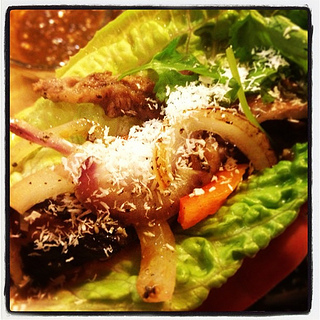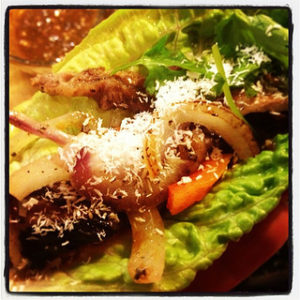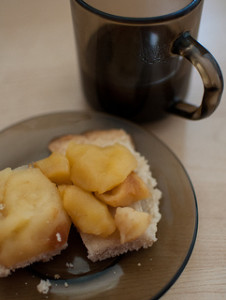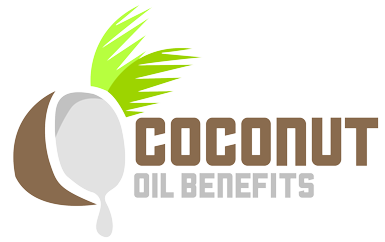
 Coconut Oil
Coconut Oil
Coconut oil is an alternative to the more traditional hydrogenated oils used in cooking. It is extracted from the meat of a coconut. Cooking with coconut oil is very common in southeast Asia. It is not as common in the United States, but its popularity has been increasing.
Coconut oil contains a high percentage of saturated fats. Most of these fats are medium chain fatty acids. Because of this high percentage of saturated fats, coconut oil has a higher melting point and smoke point than many vegetable oils. Its melting point is 75 F, so it can be solid when stored at cooler temperatures. Warming solid coconut oil will melt it for easy use. Repeatedly melting and solidifying it will not hurt it. It also has a long shelf life and can be kept at room temperature conditions for approximately two years. As with all oils, a rancid taste or smell is a good indication that it is no longer fit for use.
Health Benefits
Despite the bad reputation that saturated fats have acquired, recent research has indicated that they may be necessary for good health. Cooking with coconut oil can have the following health benefits.
- The medium chain fatty acids in coconut oil are quickly absorbed by the body and provide a good source of energy.
- Coconut oil contains a large amount of lauric acid, which can be converted in the body to monolaurin. Monolaurin helps to boost your immune system and prevent disease.
- Coconut oil is antimicrobial, antiviral, and antiprotozoic.
- Coconut oil supports healthy functioning of the heart and thyroid
- Coconut oil also helps to maintain a healthy weight.
Adding It to Your Diet
 Cooking with coconut oil can not only provide great health benefits, it is easy to do. Coconut oil can be used to replace any other oil, shortening, and even butter that is called for in a recipe. Simply substitute coconut oil on a 1 to 1 basis.
Cooking with coconut oil can not only provide great health benefits, it is easy to do. Coconut oil can be used to replace any other oil, shortening, and even butter that is called for in a recipe. Simply substitute coconut oil on a 1 to 1 basis.
Because of its high melting point, coconut oil can solidify when mixed with other ingredients that are colder. To prevent this all ingredients can be pre-warmed, or a recipe’s ingredients can be mixed in a double boiler set to a very low heat.
Coconut oil can be used to:
- Sauté vegetables, or in a stir-fry.
- As a replacement for oil or cooking sprays when frying eggs.
- Coconut oil can be used instead of butter on toast, baked or mashed potatoes, or other breads.
- Substitute coconut oil for butter or shortening when making pie crusts and pastries.
Which Oil to Use
To get the full benefits of cooking with coconut oil, a virgin oil should be used. Virgin coconut oils are extracted without the use of additional chemicals and are a natural, pure substitute in any meal.
Image Credits: dollen & allesok on Flickr







